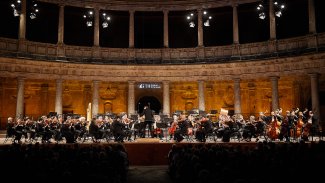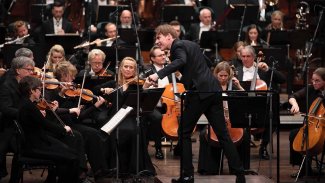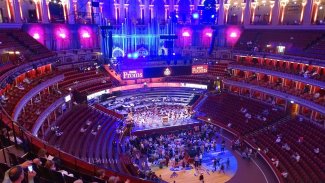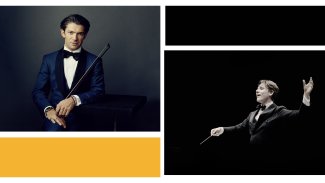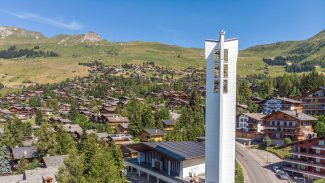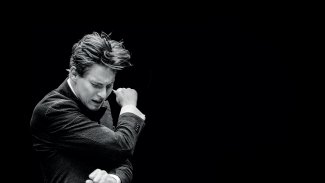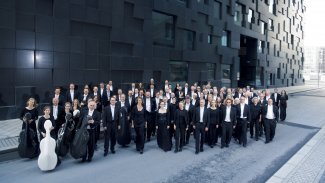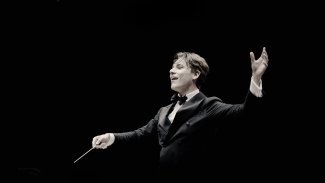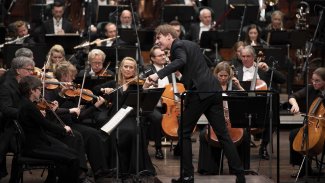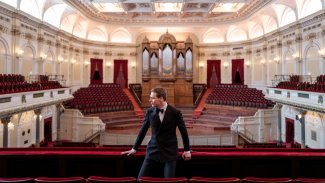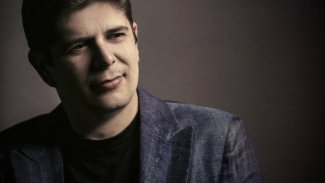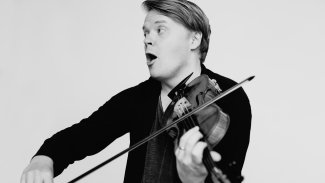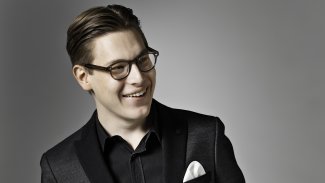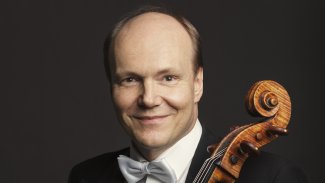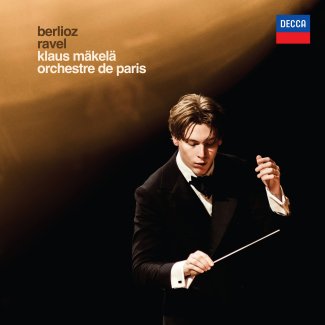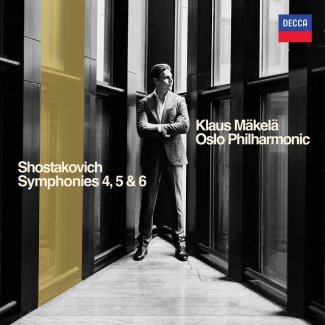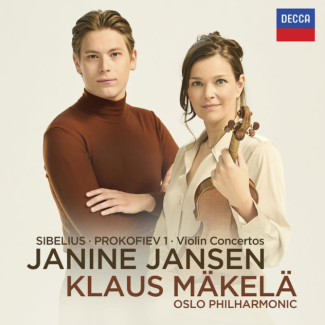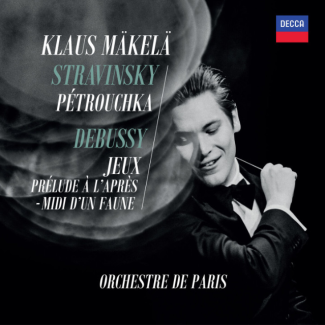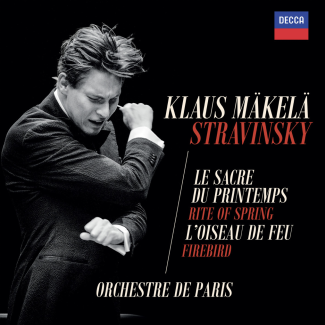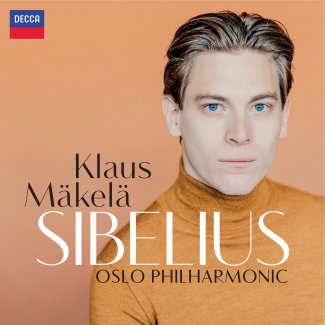
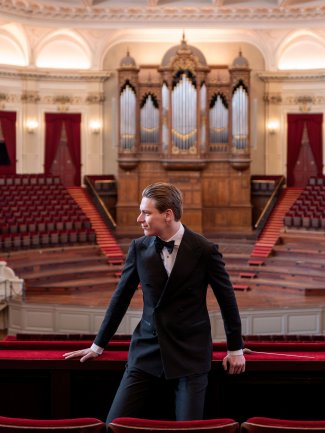
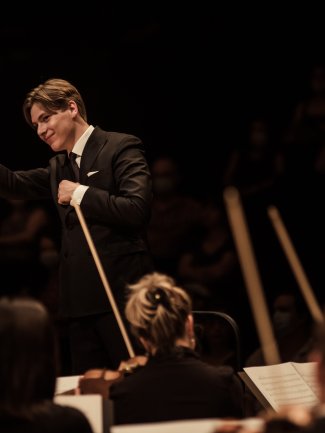
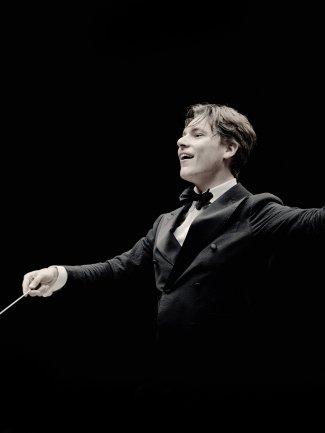
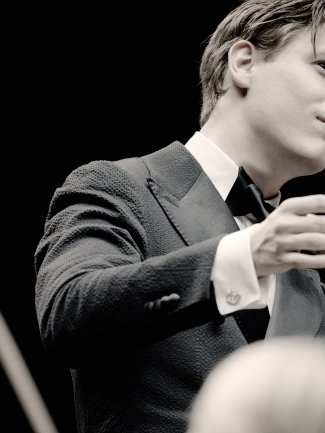

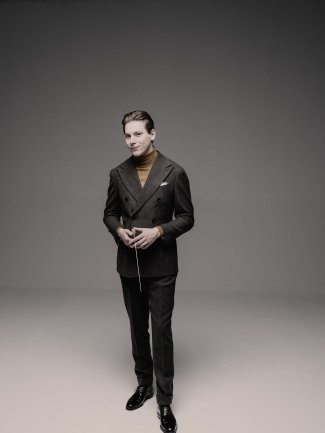
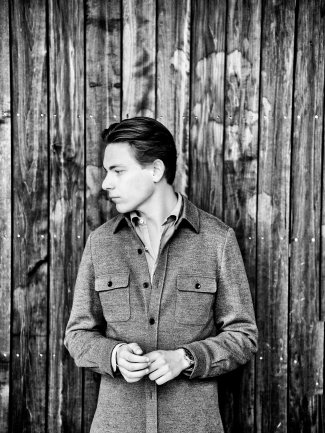
Klaus Mäkelä
“Here was something truly special: a conductor who revelled in freshly imagining each sound.”
(The Times, 2021)
Chief Conductor & Artistic Advisor: Oslo Philharmonic
Music Director: Orchestre de Paris
Artistic Partner: Concertgebouw Orchestra
Music Director Designate: Chicago Symphony Orchestra
Finnish conductor Klaus Mäkelä has held the position of chief conductor of the Oslo Philharmonic since 2020 and music director of the Orchestre de Paris since September 2021. He assumes the title of chief conductor of the Royal Concertgebouw Orchestra in September 2027 and, in the same season, begins his tenure as Zell Music Director of the Chicago Symphony Orchestra.
An exclusive Decca Classics artist, Mäkelä has released three albums with the Orchestre de Paris including Ballet Russes scores by Stravinsky and Debussy, as well as Berlioz’s Symphonie fantastique and Ravel’s La Valse. With the Oslo Philharmonic, he has recorded the complete Sibelius Symphonies, Sibelius’ and Prokofiev’s first Violin Concerto with Janine Jansen and Shostakovich’s Symphonies Nos. 4, 5 and 6.
Show More
With the Oslo Philharmonic Klaus Mäkelä opens the 2025 / 26 season with Mahler’s Symphony No. 7 and closes with Magnus Lindberg’s 1985 tour de force, Kraft. Additional highlights include a January tour and residencies in Hamburg, Vienna, Paris and Essen with performances of Shostakovich Symphony No. 8, Sibelius’ Lemminkäinen Suite and both the Tchaikovsky and Sibelius violin concertos, with soloist Lisa Batiashvili.
Mäkielä’s fifth season with the Orchestre de Paris features wide-ranging programmes, from Beethoven’s Missa Solemnis to Pascal Dusapin’s Opera Oratorio Antigone. With a continued focus on French repertoire and contemporary music they also perform Bizet’s Symphony in C and Franck’s Symphony in D minor, as well as new works by Guillaume Connesson, Joan Tower, Anders Hillborg, Ellen Reid and Sauli Zinovjev.
With the Royal Concertgebouw Orchestra, Mäkelä’s performances at the 2025 BBC Proms and Salzburg Festival are followed by an extensive tour of South Korea and Japan in the fall. At home they celebrate the 50th anniversary of the traditional Christmas Matinée TV broadcasts and at the 2026 Baden Baden Easter Festival commence an annual residency, taking over from the Berliner Philharmoniker.
Klaus Mäkelä conducts the Chicago Symphony Orchestra in four residencies at Symphony Center this sesaon and leads a U.S. tour, making his first appearance with the CSO at Carnegie Hall in February, performing Sibelius’ Lemminkäinen and Ricjhard Strauss’ Ein Heldenleben. He returns to the States in Summer 2026 for his Ravinia Festival debut, leading the CSO in two programmes.
In the 2025 / 26 season Mäkelä appears as guest conductor with the Berliner Philharmoniker. As a cellist he partners with members of the Orchestre de Paris and Concertgebouw Orchestra.
Contacts
Jasper Parrott Executive Chairman HP Group & Associated Companies
worldwide general management
worldwide general management
“Mäkelä and the players fed off each other’s energy to produce a performance that one hopes was as breathtaking for them to play as it was for the audience to hear … The shattering end of the Rite brought the audience instantly to its feet.”
“The Oslo Philharmonic’s stripped-down opera performance (of Bartok’s Duke Bluebeard’s Castle) let the music speak for itself … Mäkelä emphasised the different voices so clearly and distinctly that it was like seeing the score in front of you. Truly brilliant, world-class playing.”
“Mäkelä managed to reveal unsuspected details throughout (Mussorgsky’s Pictures at an Exhibition), with the brilliant orchestra always as his excellent instrument. And when we arrived in amazement at The Great Gate of Kiev, the orchestral floodgates opened at exactly the right time. You felt moved by a performance by a legendary maestro from the past.”
“… Mäkelä’s sure-footed gestures and the relief he gives to details and accents (in Tchaikovsky’s Nutcracker) never lose sight of the wonder of childhood, with its smiles and thrills. Throughout, the musicians of the Orchestre de Paris cultivate a transparency, a shimmer, a delicate breath that seems to draw Tchaikovsky’s score towards French music … and the conductor’s sense of storytelling is matched by his panache.”
“Throughout the evening, the Finnish conductor managed to balance the tension, speed and colours in a meaningful way … Throughout all six movements (of Mahler Symphony No. 3) he showed an iron control, using emphasis and contrasts sparingly so that all his choices really meant something.”
“Makela’s close attention to colouring individual phrases, particularly in the strings, created a beautifully cantabile effect (in Sibelius Symphony no. 7). There was magic, even devilry, in the fast middle part, and scrupulous balance between the sections. Pure refreshment.”
“Klaus Mäkelä’s Sixth by Shostakovich sounds haunting from the first bar of the opening Largo, gripping, intense … All shades of gray are filtered out, the music develops a surprising singularity, an inner glow, awakens associations with nature.
“ … Mäkelä’s Tchaikovsky, while not profound, proved terrific … His style of leadership is both commanding and spontaneous. His imprint is personal.”



